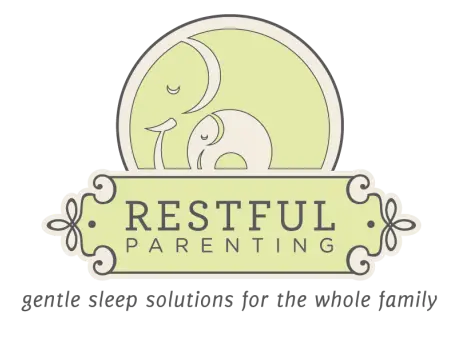We hate to be the bearer of bad news, but when it comes to sleep and sleep challenges there really is no ‘magic’ solution – sorry! There are so many contributing factors when it comes to sleep and really digging deep into what is causing those sleep challenges may be necessary to really solve them. In the mean time there are some fairly easy things you can do now to help with those bedtime battles, so today we are sharing 3 tips for easier bedtimes!
Tip#1: Timing is Everything!
The amount of daytime sleep and the timing of naps along with bedtime has a huge effect on how well your child will go down in the evening and how well they will sleep.
Too late of a bedtime will cause your child to go to bed overtired giving them their second wind and more energy for the battle. Not to mention, when they are overtired, their bodies just CANNOT shut down. It would be like us adults trying to go to bed after consuming Espresso coffee!
Depending on what time your child needs to be up for in the morning counting back 11-12 hours for the recommended number of hours for overnight sleep will give you a good idea as to when bedtime should be. Since most little ones are awake by 6:30/7:00 am, this would mean that in most cases, they would do really well with a 6:30/7:00 bedtime. (Again, this depends on the individual child.) And don’t worry about the early bedtime causing early waking – that is a myth!
Tip#2: Routine Helps Children Prepare for Sleep
Your little one does not know how to tell time. Children depend on certain cues to tell them that it is time for sleep. A short sequence of events (a routine) that happens every time they go to sleep can do wonders to help their brains understand that it is time for sleep, and this mental preparation cues their bodies to produce melatonin (our body’s natural sleep aid.)
If they are going from one activity to bed, it can be hard for their little systems to relax enough for sleep if they do not have that decompression time of a predictable routine. Think about how difficult it would be for you to go straight from a social gathering to bed without some time in between to relax and decompress!
The routine does not have to be long, it just needs to be predictable.
Tip #3: Set limits and be consistent!
Setting limits around bedtime and being consistent with them will be key! If they have already had 5 sips of water and 3 trips to the bathroom, it is safe to say that they are no longer thirsty or needing to pee. Children like to know what they can expect from us as parents surrounding certain aspects of their day-to-day and being inconsistent with the response actually encourages children to keep pushing those boundaries.
Setting limits may come with some upset though, so validating those feelings, being understanding with why they are feeling upset and supporting them will help them come through the other side but you will need to stick with those limits!
Creating a bedtime chart for everyone to follow, which includes extra sips of water, extra trips to the bathroom, extra hugs and kisses can help keep the bedtime routine on track and can also help with saying no and setting those limits for all the extras. Including everything from your own routine into the chart and having a spot for your little one to put a sticker or check mark beside each step will also encourage a happier bedtime.
Bonus Tip: Teach them to fall asleep independently
What ultimately solves many sleep challenges is when your child learns how to fall asleep independently. If they need your help to get back to sleep every time they wake up or just settling down for the night, that dependence can cause challenges that often escalate instead of getting better on their own.
Regardless of how your child falls asleep though, the above tips should help make for easier bedtimes!
If you find yourself struggling with sleep challenges and need help digging into the problem and coming up with solutions- we are here to help! We have helped many families (read what they have to say here) get the sleep they need! Check out our services page and contact us for a free consultation to find out how we can help!
Meet Jennifer Taun
MSW, RSW – Partnering with Restful Parenting

We are excited to introduce Jennifer Taun, MSW, RSW, as a valued partner with Restful Parenting. Jennifer will be providing consultation and supervision support for our team, working closely with Elisa and Pam to ensure our clients receive comprehensive, effective, and compassionate care.




